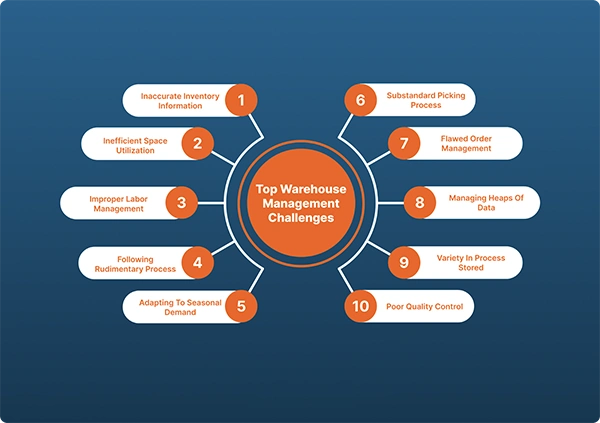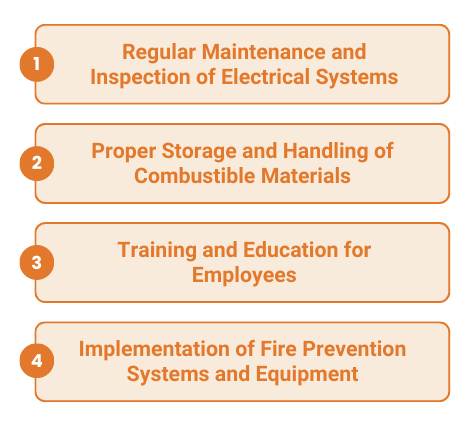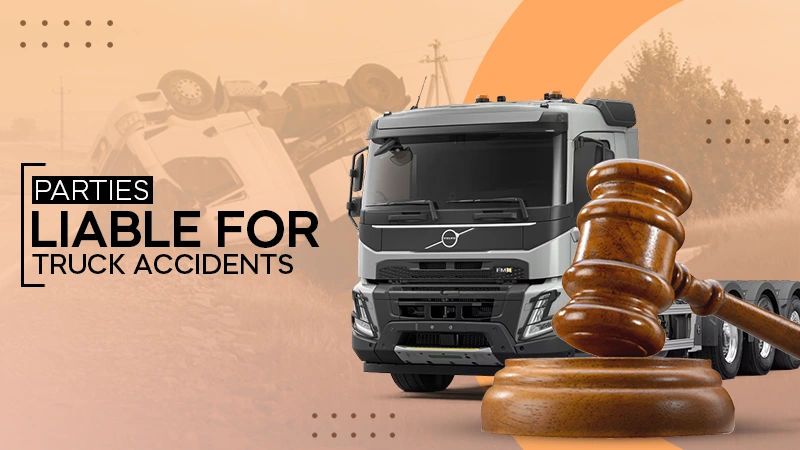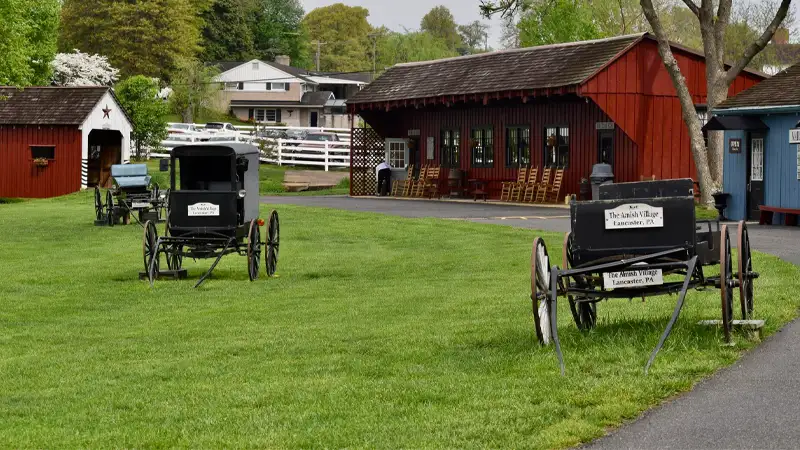Top 8 Legal Compliance Challenges Faced by Industrial Warehouses
Jump To Key Section
- 1. Rules and Regulations Respecting Occupational Safety And Health
- 2. Environmental Regulations
- 3. Fire Safety & Building Codes
- 4. Labor Laws
- 5. Intellectual Property Rights
- 6. Transportation Regulations
- 7. Product Safety Standards
- 8. Employment Immigration Laws
- The Best Practices for Compliance in Your Industrial Warehouses
Industrial warehouses are mainly used for the storage of raw materials, finished goods, and machinery. They maintain the supply chain, ensuring goods go from manufacturer to consumer. Not only that, but it is one of the most difficult ones to do in terms of legal compliance.
This post discusses the major 8 legal challenges that most industrial processing plants encounter and also describes how to resolve them strategically. Let’s make it easy in this read.
1. Rules and Regulations Respecting Occupational Safety And Health

An organization is responsible to protect and care for its employees, full stop. It embraces factories and warehouses.
Risks
Workers working at warehouses can come with a risk syndrome. Lifting heavy things, accidents with machines, and contact with hazardous materials are among the biggest hazards. These are serious hazards that can result in injuries and even fatalities.
Compliance Measures
Industrial Warehouse Safety: How To Follow All The Basics Rules? Employee security should also be checked regularly, as well as workers provided with proper personal protective equipment (PPE) when needed.
2. Environmental Regulations
It is the job of industrial storage facilities to house and dispose of hazardous materials that could harm our environment if not stored correctly
Risks
Improper storage or disposal of hazardous chemicals can poison the environment. This also poses a security threat to both the warehouse and local communities.
Compliance Measures
Green practice can be another solution to this challenge, which enables warehouses to fight against it. That might consist of recycling, making use of power-effective devices, and keeping track of waste. Warehouses can keep up with changes in environmental regulations by partnering with ESG compliance lawyers.
3. Fire Safety & Building Codes
Storage facilities are large and complex constructions. Thus, they are vulnerable to fires. It is very important to adhere to the building codes and fire protection regulations for employees as well as goods being transported are safe.
Risks
Obviously, disregarding fire protection protocol could lead to fires happening. It ruins the warehouse, destroys inventory, and becomes a risk to employees.
Compliance Measures
Warehouses can mitigate this risk by regularly carrying out fire drills, having clear emergency exits and evacuation plans in place, at a minimum maintaining their existing fire suppression equipment to prevent the unnecessary spread of flames. They have to comply with three sets of building codes for material storage and appropriate ventilation.
The below infographic displays the best warehouse fire safety tips

4. Labor Laws
If you’ve been employed by a business, doing so means they have to follow labor laws that ensure workers are paid fairly and not overworked or discriminated against. These are the laws all storage must follow to ensure their worker’s safety and well-being are preserved.
Risks
Failure to adhere to labor laws can result in legal complications, fines and damage the reputation of the warehouse
Compliance Measures
Labor laws dictate how many employees can be hired to do this in warehouses. Employee Policies Need to Be Updated Regularly To Meet Existing Laws It is also necessary that your managers and supervisors are trained in how to manage complaints at work, and avoid discrimination or harassment.
5. Intellectual Property Rights
Industrial storage works with key product design, trade secrets, and customer information. It is important to keep this information safe for an edge in the market.
Risks
It leads to serious problems when we use intellectual property or share them without permission. You could pay a price in court and big money. It can cause huge profit losses, especially for organizations that derive benefit and competitive advantage from their IP.
These kinds of breaches can lead to negative opinions about an organizer company, and clients, as well as partners, could start distrusting the firm for many more years. Financial stability and a good brand image are responsible for the survival of any company, which means the need to get away with protecting intellectual property.
Compliance Measures
Warehouses should take stronger security to protect their intellectual property rights. You must also put Restrictions on sensitive Areas for Entry.
It is a must for those people going in and out to be later accounted for, but this job can easily bring you down, hence keeping good records. You should have confidentiality agreements in place with all employees and vendors as well, especially at warehouses.
These outlines emphasize why confidentiality is so vital and the implications of not preserving it. These approaches contribute to securing intellectual property and building a secure-aware culture within the organization.
6. Transportation Regulations
This is where yard transportation gets serious, crossing the rules for single-trailer vehicle safety, driver competence, and management of goods. This relatively new company is responsible for complying with these rules in warehouses.
Risks
Traffic rules should never be taken lightly as failing to follow the right transportation ways can result in accidents where someone could get injured or even worse, die. Not only does this endanger drivers and pedestrians, but it also opens up the warehouse to potential legal issues.
Violating these rules results in significant fines, increased insurance rates, and potential lawsuits that might prove to damage the warehouse’s reputation as well as financially. These are the rules that warehouses need to ensure their compliance with as part of maintaining safe premises and staying out on the right side, legally.
Compliance Measures
The rules on transportation require a dedicated team during all the time in warehouses. They need to review safety procedures, it’s all about maintaining that workspace and keeping the environment safe. Over the years, you have to encourage automobile inspection regularly so they can detect any problems before they deteriorate.
Therefore, driver training is equally important along with equipping them with the necessary tools to drive safely and by traffic regulations. Warehouses can improve safety, as well as better work practices where they focus.
Do You Know?
As the demand for warehouses is rising, warehouse renting prices whooped about 28.7% between 2011 and 2015.
7. Product Safety Standards
Products: How can industrial warehouses keep the goods they store safe? Obey risk-management precautions when products support it doing so. This serves as a protection for the consumer and avoids any unwanted legal implications.
Risks
However, cooperation with product safety requirements turns out to be also beneficial for customers. This can result in costly recalls and warehousing damage.
Compliance Measures
All warehouses must comply with product safeguarding regulations. Understanding the rules for their products in that regulated lure market. These should have specific steps for labeling, storage and eventually serving in an ordered fashion.
8. Employment Immigration Laws
With the world becoming smaller, industrial warehouses could run into problems with immigration laws for workers as businesses expand globally. These rules dictate how corporate managers recruit and retain foreign talent.
Risks
Failure to comply with employment immigration laws can lead to legal trouble. This is through fines, sanctions, and even revocation of business licenses.
Compliance Measures
Immigration law must be enforced in warehouses. To do this, they need the assistance of experienced immigration attorneys.
Good processes are needed to ensure that an employer knows how long someone can work in the country. Lawmakers are encouraged to look at their policies regularly, as these laws may change.
The Best Practices for Compliance in Your Industrial Warehouses
If you want to work in a warehouse, compliance is your best friend. Here is a list of the top 8 legal challenges warehouses can face to protect their workers and resources, similarly ostensibly good fettle as their established repute.
Warehouse owners and managers should keep up to date with any rule changes and be prepared for legal help if necessary. Work with us to save industrial supply chains from automation and regulations.








